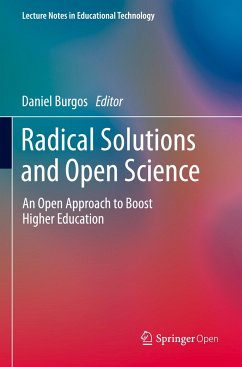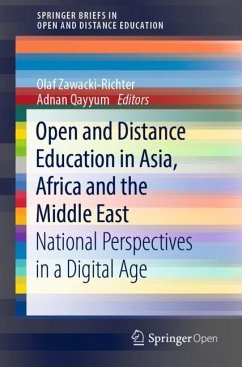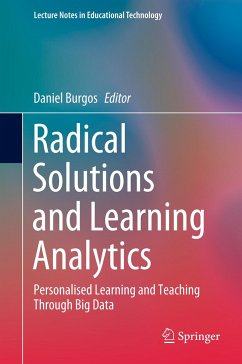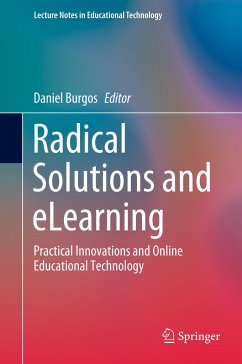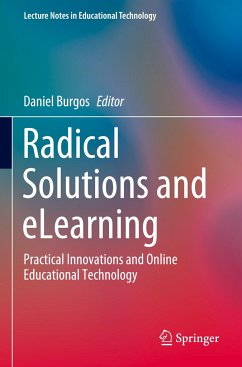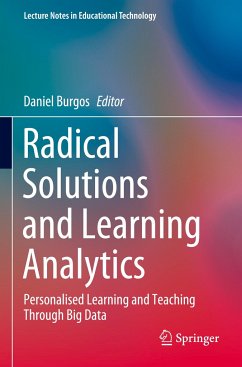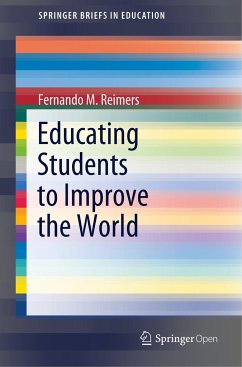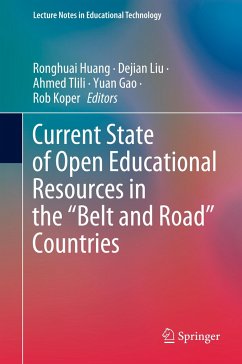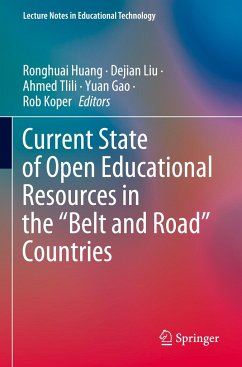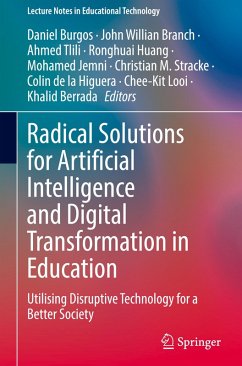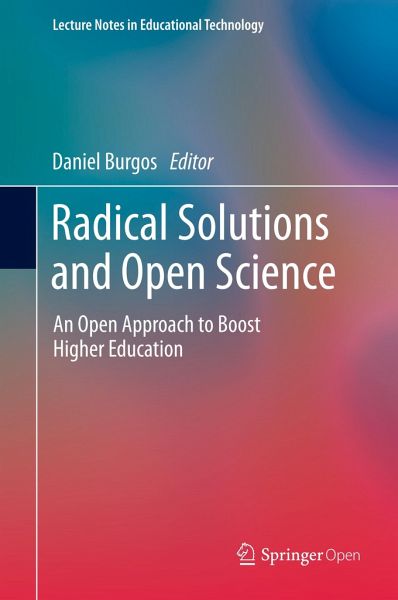
Radical Solutions and Open Science
An Open Approach to Boost Higher Education
Herausgegeben: Burgos, Daniel
Versandkostenfrei!
Versandfertig in 6-10 Tagen
38,99 €
inkl. MwSt.

PAYBACK Punkte
19 °P sammeln!
This open access book presents how Open Science is a powerful tool to boost Higher Education. The book introduces the reader into Open Access, Open Technology, Open Data, Open Research results, Open Licensing, Open Accreditation, Open Certification, Open Policy and, of course, Open Educational Resources. It brings all these key topics from major players in the field; experts that present the current state of the art and the forthcoming steps towards a useful and effective implementation.This book presents radical, transgenic solutions for recurrent and long-standing problems in Higher Educatio...
This open access book presents how Open Science is a powerful tool to boost Higher Education. The book introduces the reader into Open Access, Open Technology, Open Data, Open Research results, Open Licensing, Open Accreditation, Open Certification, Open Policy and, of course, Open Educational Resources. It brings all these key topics from major players in the field; experts that present the current state of the art and the forthcoming steps towards a useful and effective implementation.
This book presents radical, transgenic solutions for recurrent and long-standing problems in Higher Education. Every chapter presents a clear view and a related solution to make Higher Education progress and implement tools and strategies to improve the user's performance and learning experience. This book is part of a trilogy with companion volumes on Radical Solutions & Learning Analytics and Radical Solutions & eLearning.
This book presents radical, transgenic solutions for recurrent and long-standing problems in Higher Education. Every chapter presents a clear view and a related solution to make Higher Education progress and implement tools and strategies to improve the user's performance and learning experience. This book is part of a trilogy with companion volumes on Radical Solutions & Learning Analytics and Radical Solutions & eLearning.





